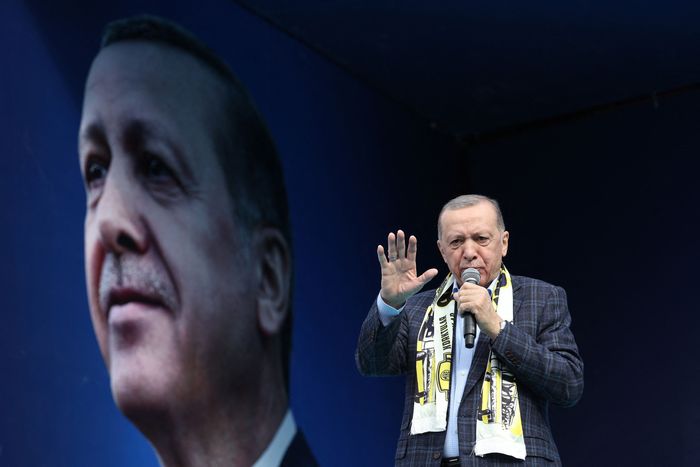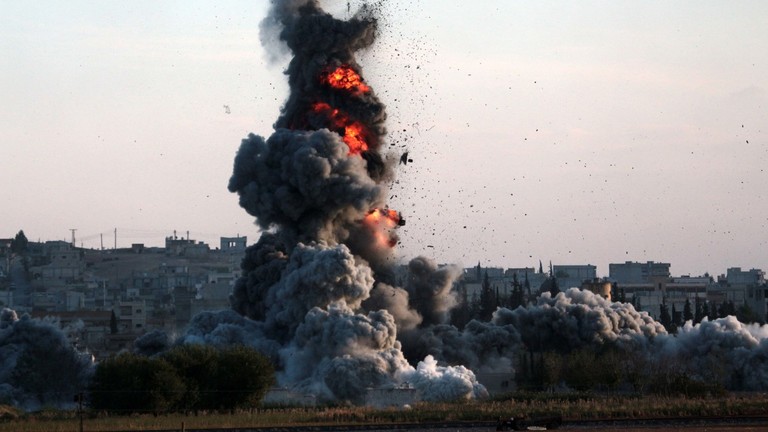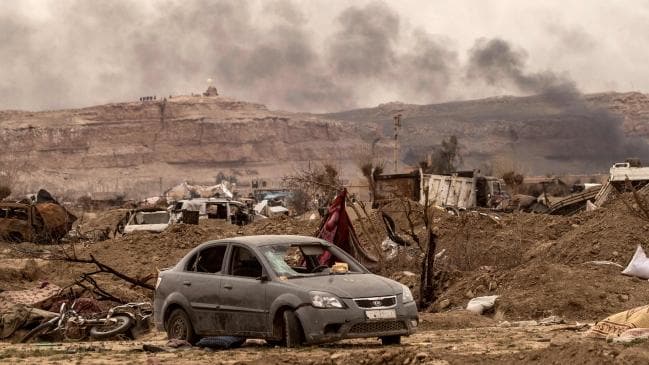Horrifying Islamic State attack is a warning to the world
Islamic State is back and it wants to revive a campaign of global terror. Strategists warn it once again has the following it needs to do so.
Islamic State is back. It’s calling for a new wave of “lone wolves” to revive its campaign of global terror. And strategists warn it once again has the following it needs to do so.
The brutal attack on a Moscow concert hall proves the international Islamic jihadist network has not been defeated after more than two decades of war in Afghanistan, Iraq and Syria.
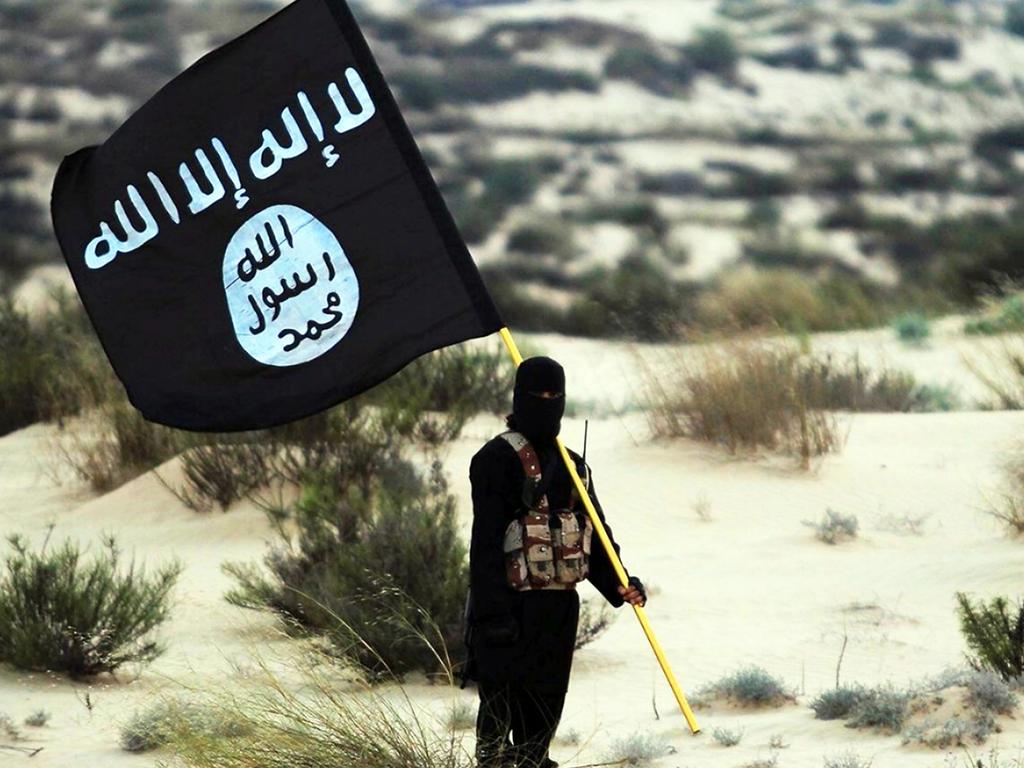
In fact, after the abrupt retreat of Western forces from Afghanistan in July 2021, it has reinvigorated its recruitment campaign, restored its stock of weapons and built up cash reserves.
That’s mainly due to a combination of tacit support and ineffective policing by Afghanistan’s hardline Taliban government. But also the “distractions” of Israel and the South China Sea.
Now Islamic State’s Afghanistan division (ISIS-K) is ready to take up the black flag and lead a new round of terror attacks aimed at creating a new caliphate - and triggering armageddon.
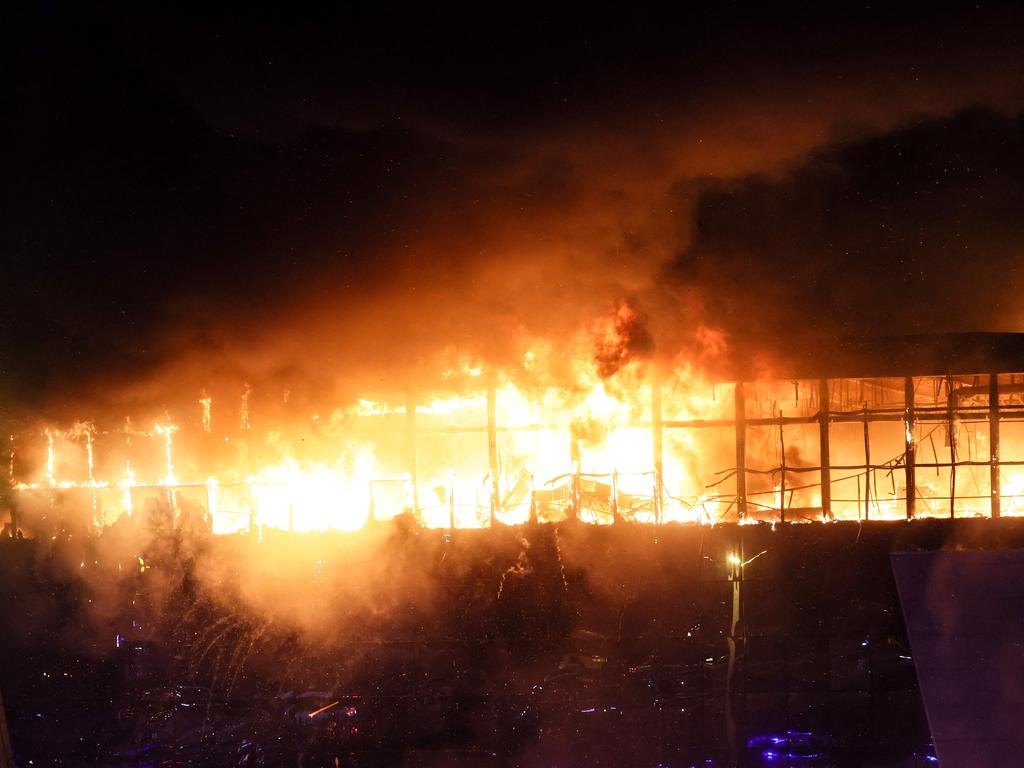
Islamic State chief propagandist Abu Hudhayfah al-Ansari late last week released a statement on the Telegram social media app calling on followers around the world to attack Christians and Jews before the Islamic holy month of Ramadan ends on April 9.
The 41-minute diatribe titled “By Allah, this matter will be made possible” called for renewed attacks on Western forces inside Iraq and Syria. It instructed Islamic State fighters in the Philippines to “move operations into major cities” and members in Mozambique to “double their attacks”.
Beheaded hostages. Mass executions. Cars being driven through crowds.
One of the hallmarks of Islamic State was to post footage of its crimes to social media to exhort its followers to even greater acts of obscene violence.Now, its successor is ordering wannabe martyrs worldwide to do the same again.
European tourism hotspots ramp up anti-terror measures
France, Italy and Denmark have all beefed up their anti-terrorism measures in light of the Moscow massacre.
Last week, Italy and France raised their terror alerts to the highest level, vowing to increase surveillance at tourism hotspots.
“In light of ISIS’s alleged attack and the threat to our country, we have decided to elevate the Vigipirate status to the highest level: attack emergency,” France’s Prime Minister Gabriel Attal wrote on X.
“The enemy is known, it is Islamist terrorism. The threat he poses to our country is strong and real,” he added.
The Dutch domestic security service also upped its terror threat level.
“Over the past few months the terrorist threat has increased to such an extent that the threat level has been raised to 4,” the National Coordinator for Counter-terrorism and Security said.
“This means that there is a realistic possibility that an attack will take place in the Netherlands.”
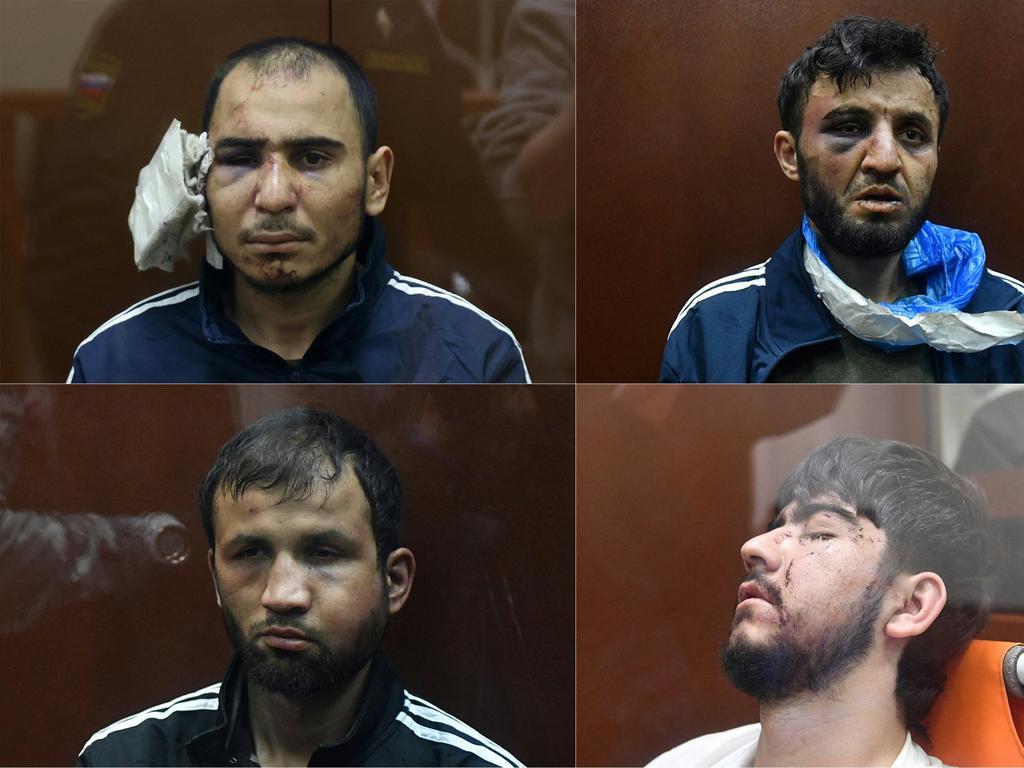
Caliphate resurrected
“While ISIS’s territorial caliphate has been dismantled, its ideological appeal endures,” warns an analysis from the Foreign Policy Research Institute (FPRI).
The dreams of self-proclaimed caliph (successor of the prophet Muhammad) Abu Bakr al-Baghdadi came crashing down with the fall of his capital, Raqqa. His sharia-law empire had extended across much of Syria and Iraq. But it took another two years before the caliphate’s last outposts were overrun in 2019.
Islamic State’s extreme interpretation of religious lore had by then already branched out across the world. It has operatives in Egypt, Nigeria, Mozambique and Congo. It also attracted followers in Southeast Asian nations, including Indonesia, Malaysia and the Philippines.
Afghanistan has proven to be an unassailable safe haven for terrorist organisations. And, as an offspring of Osama bin Laden’s al-Qaeda, Islamic State has always considered the largely lawless mountainous nation to be one of its heartlands.
“ISIS and its affiliates have demonstrated a remarkable ability to adapt and survive,” FPRI analysts Colin Clarke and Christopher O’Leary write.
“ISIS’s ability to recruit, inspire, radicalise, and mobilise its supporters to violence is directly tied to its effectiveness in exploiting historical grievances and its deliberate strategy to establish franchise groups in regions characterised by political corruption, vast socioeconomic disparities, and weak governance.”
Dubbed ISIS-Khorasan (ISIS-K), the FPRI analysts say the Afghanistan branch is “currently the Islamic State’s standard bearer and most operationally capable affiliate”.
And it has a new aspirant-caliph.
Sanaullah Ghafari (aka Shahab al-Muhajir) is an Afghan citizen believed to be of Tajikistan heritage. He is accused of organising an attack that killed 13 US troops at the Kabul airport in 2021.
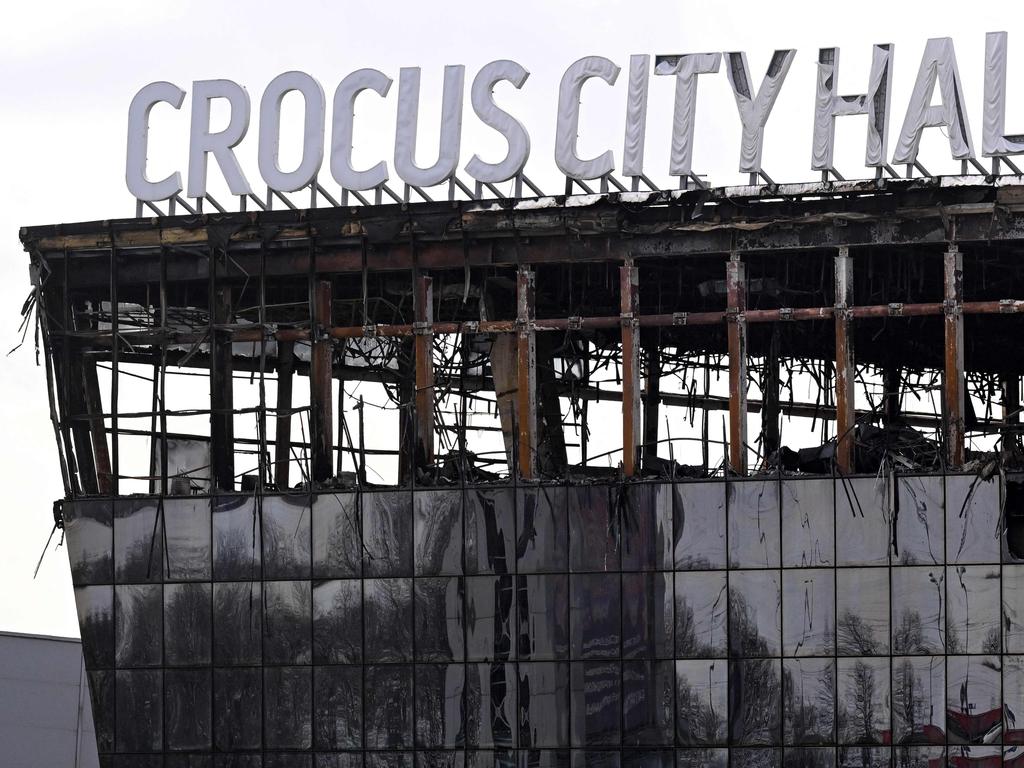
New world disorder
“(Islamic State) retains the capability and the will to attack US and Western interests abroad in as little as six months with little to no warning,” US Central Command’s General Michel E. Kurilla told Congress early in March.
It was an unwelcome reminder of a global crisis many had wished out of existence.
“The zeitgeist in Washington and Brussels is all about ‘great power competition’… and it makes sense to divert resources to counter China’s rise and deal with the complexities presented by artificial intelligence,” the FPRI analysis states. “Yet, pivoting from counterterrorism will have serious consequences”.
The Moscow attack was not its first new operation. But it was its most successful.
In December, a plot to attack Cologne Cathedral in Germany on New Year’s Eve was thwarted by counter-terror police. Related arrests were made across Europe.
“The ISIS-K attack in Moscow was a stark reminder of the group’s reach,” the FPRI report states. “It demonstrated that, with the deadly marriage of capability and intent, Islamic State jihadists could look to target US embassies, facilities, or personnel abroad.”
New York-based think-tank The Soufan Center released a briefing note at the weekend saying ISIS-K was seeking recruits among those suffering the extreme poverty and harsh living conditions of Syria’s refugee camps. And a series of raids in recent years have been aimed at springing some 9000 ISIS fighters out of detention centres there.
Many of the revived terror groups appear to come from Tajikistan and Uzbekistan.
“(ISIS-K’s) focus on attracting fighters across Central Asia is apparent in its propaganda materials, which are often released in local languages … via social media channels such as Telegram,” the Soufan report notes.
That effort is aimed at forming a ground force to once again turn Syria and Iraq into a new caliphate. But it also wants its loyal subjects to further destabilise an increasingly fragile world order.
“Apart from IS-K, the al-Qaeda-aligned TIP (Turkestan Islamic Party) has both increasingly targeted China in its propaganda materials and Chinese nationals for terrorist attacks in Afghanistan and Pakistan,” the briefing adds.
“(Last week) a suicide bombing killed five Chinese nationals in northwestern Pakistan. While the geopolitics of Central Asia dictate a delicate balancing act between Russia, China, Iran, and the West, jihadi factions operating in the region have displayed their willingness to target anyone who opposes them.”
Keywords
<p data-qa="subheadline">Lawmakers sped the proposal, the most significant threat to the popular app’s U.S. operations, by tying it to a sprawling funding package offering...
Ukraine war: Kyiv uses longer-range US missiles for first time
How soon could US ban TikTok after Congress approved bill?
TikTok faces US ban as bill set to be signed by Biden
‘LOSING CREDIBILITY’: Judge explodes at Trump lawyers as case heats up
Claim rapper ‘made staff watch her have sex’
KANYE WEST PLANS TO LAUNCH 'YEEZY PORN' ... Could Be Coming Soon!!!
Megan Thee Stallion’s Ex-Makeup Guru Talks. It’s Not Pretty.
King’s Funeral Plans Dusted Off—as Health Remains a Mystery
The EU warned TikTok’s new rewards feature could be addictive. Now the app's suspended it
